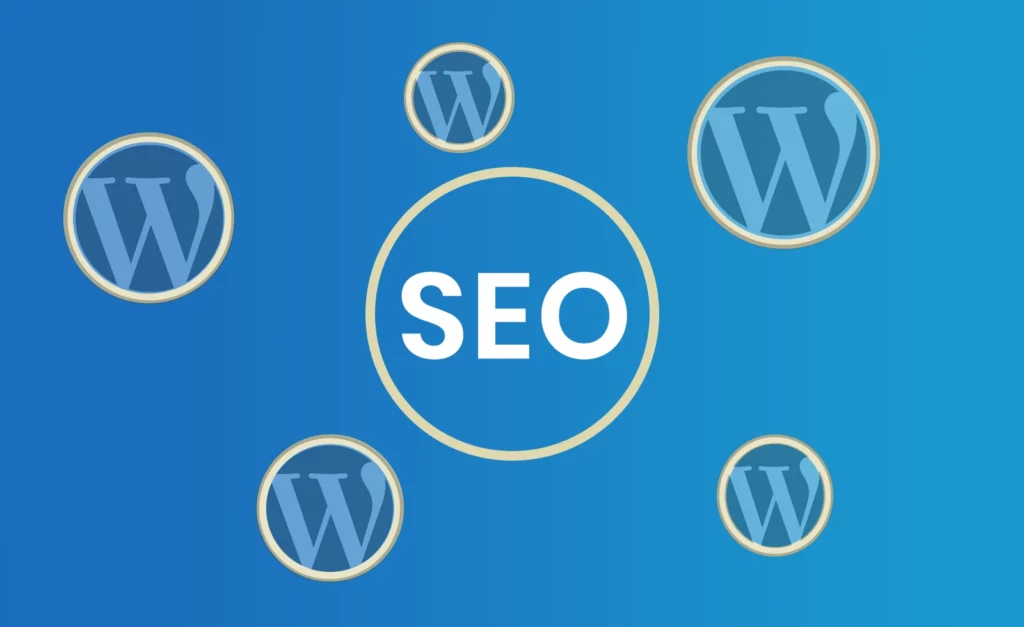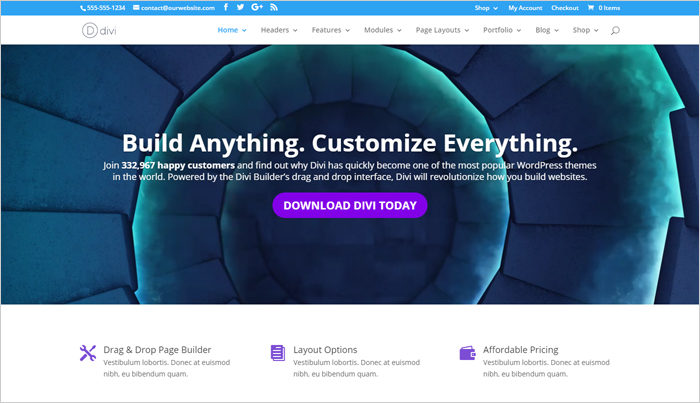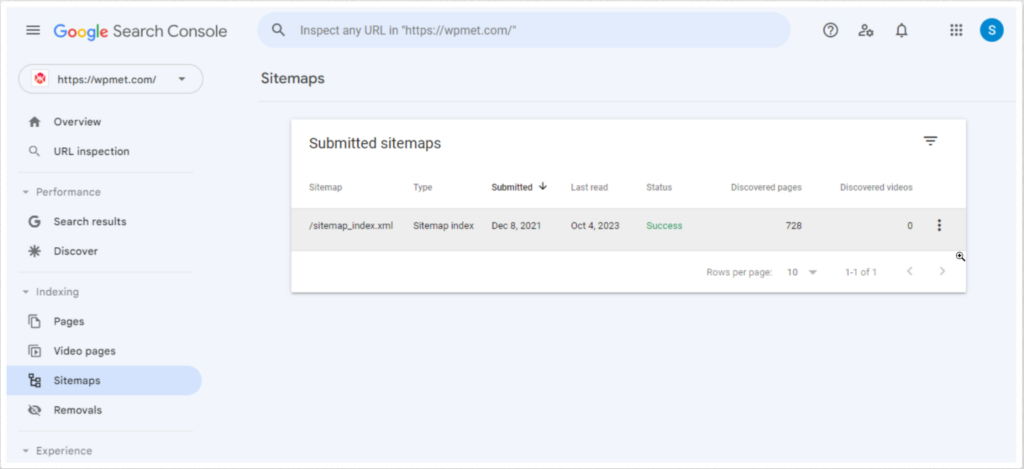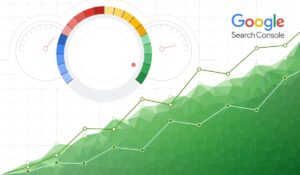WordPress is the most popular content management system (CMS) in the world, powering over 43% of all websites. It is known for its ease of use and flexibility, making it a great choice for businesses of all sizes.
However, if you want your WordPress website to rank well in search engines, you need to optimize it for SEO. This means making sure that your website is technically sound and that your content is relevant and informative to your target audience.
- What is SEO and How Does it Work?
- Why Should You Optimize Your WordPress Website for SEO?
- Is WordPress Good for SEO?
- 15 Tips to Optimize Your WordPress Website for SEO
- 1) Choose a fast web hosting provider
- 2) Use a lightweight WordPress theme
- 3) Optimize your images
- 4) Use a caching plugin
- 5) Use a content delivery network (CDN)
- There are a number of benefits to using a CDN:
- 6) Use a security plugin
- 7) Use an SEO plugin
- 8) Create high-quality content
- 9) Use relevant keywords
- 10) Optimize your title tags and meta descriptions
- 11) Use keywords in your header tags
- 12) Internal link to other pages on your website
- 13) Get backlinks from other websites
- 14) Submit your website to search engines
- 15) Monitor your website's performance
Comprehensive Table of Contents for Optimizing Your WordPress SEO
What is SEO and How Does it Work?
SEO stands for search engine optimization. It is the process of improving the visibility and ranking of a website or web page in search engine results pages (SERPs). The higher a website or web page ranks in the SERPs, the more likely it is to be seen by potential visitors.
Search engines use a variety of factors to rank websites and web pages, including the content of the page, the number and quality of backlinks to the page, and the technical structure of the website.
Here is a simplified overview of how SEO works:
- Search engines crawl the web. This means that they follow links from one website to another and index the content of each website.
- Search engines index the web. This means that they store a copy of the content of each website in their database.
- Search engines rank the web. This means that they use a variety of factors to determine how to order the results in their SERPs.
- Search engines serve results to users. When a user enters a search query, the search engine returns a list of results that are relevant to the query.
SEO can be a complex process, but it is essential for businesses that want to be found online. By optimizing their websites for SEO, businesses can improve their chances of ranking well in search results and attracting more visitors.
Why Should You Optimize Your WordPress Website for SEO?
There are many reasons why you should optimize your WordPress website for SEO. Here are a few of the most important ones:
- Increased visibility: SEO can help your website rank higher in search engine results pages (SERPs). This means that more people will see your website when they search for keywords related to your business.
- More traffic: A higher ranking in SERPs leads to more traffic to your website. More traffic means more potential customers for your business.
- Improved brand awareness: SEO can help increase brand awareness by making your website more visible online. When people see your website in SERPs, they are more likely to remember your brand.
- Better user experience: SEO can help improve the user experience of your website by making it easier for people to find the information they are looking for. When your website is optimized for SEO, it is more likely to rank higher for relevant keywords, which means that people are more likely to find your website when they search for those keywords.
- Increased sales and leads: SEO can help you generate more sales and leads for your business. When people visit your website and learn about your products or services, they are more likely to become customers.
In addition to these benefits, SEO is also a long-term investment. Once you have optimized your website for SEO, it will continue to rank well in SERPs over time, even if you don’t make any further changes to your website. This means that you can continue to benefit from increased visibility, traffic, and sales for years to come.
If you are serious about growing your WordPress website, then SEO is an essential part of your marketing strategy. By optimizing your website for SEO, you can improve your visibility, traffic, brand awareness, user experience, and sales.
Is WordPress Good for SEO?
Yes, WordPress is good for SEO. It is a content management system (CMS) that is designed to be SEO-friendly.

It has a number of features that make it easy to optimize your website for search engines, including:
- Clean and well-coded code: WordPress is coded using the latest SEO best practices. This means that your website will be more likely to rank well in search results.
- Easy to use: WordPress is easy to use, even for beginners. This means that you don’t need to be a web developer to optimize your website for SEO.
- Wide range of plugins: There are a number of WordPress plugins that can help you improve your website’s SEO. These plugins can help you optimize your content, images, and links.
- Large community: WordPress has a large and active community of users. This means that there are a lot of resources available to help you learn more about SEO and optimize your WordPress website.
In addition to these features, WordPress is also used by some of the biggest websites in the world, such as The New York Times, BBC America, and TechCrunch. This shows that WordPress is a powerful and scalable CMS that can be used to create websites of all sizes and for all purposes.
If you are looking for a CMS that is good for SEO, then WordPress is a great option. It is easy to use, has a wide range of features, and is used by some of the biggest websites in the world.
15 Tips to Optimize Your WordPress Website for SEO

1) Choose a fast web hosting provider
Your website’s loading speed is a major ranking factor, so it’s important to choose a web hosting provider that offers fast and reliable service.

When choosing a web hosting provider, there are a few things you should keep in mind:
- Server location: The closer the server is to your visitors, the faster your website will load.
- Server uptime: The server uptime refers to the percentage of time the server is up and running. A good web hosting provider will have an uptime of at least 99.9%.
- Server resources: The server resources include the amount of CPU, RAM, and disk space that is available to your website. Make sure to choose a web hosting provider that offers enough resources to meet your needs.
- Customer support: If you have any problems with your website, you need to be able to get help from your web hosting provider quickly and easily. Make sure to choose a web hosting provider that offers good customer support.
Here are some of the best web hosting providers for fast loading websites:
- Kinsta: Kinsta is a managed WordPress hosting provider that offers fast and reliable service. They use Google Cloud Platform servers and have a team of experts who manage your WordPress site for you.
- WP Engine: WP Engine is another managed WordPress hosting provider that offers fast and reliable service. They also use Google Cloud Platform servers and have a team of experts who manage your WordPress site for you.
- SiteGround: SiteGround is a shared hosting provider that offers fast and reliable service. They have servers all over the world and offer a variety of hosting plans to choose from.
- Bluehost: Bluehost is another shared hosting provider that offers fast and reliable service. They have servers all over the world and offer a variety of hosting plans to choose from.
- HostGator: HostGator is a shared hosting provider that offers fast and reliable service. They have servers all over the world and offer a variety of hosting plans to choose from.
When choosing a web hosting provider, it is important to compare the different plans and features offered by each provider. You should also read reviews of different web hosting providers before making a decision.
2) Use a lightweight WordPress theme
A lightweight theme will help your website load faster, which is important for both SEO and user experience.
A lightweight theme is a WordPress theme that is designed to be fast and efficient. It will have a smaller codebase and fewer features than a more complex theme, but this will also make it faster to load.
There are a number of benefits to using a lightweight WordPress theme:
- Faster loading speeds: Lightweight themes are designed to load quickly, which is important for both SEO and user experience.
- Improved performance: Lightweight themes can also improve your website’s overall performance, including things like page load times and server response times.
- Better security: Lightweight themes are often more secure than more complex themes. This is because they have fewer features and code, which makes them less vulnerable to attack.
- Easier to manage: Lightweight themes are also easier to manage than more complex themes. This is because they have fewer features and settings, so there is less to learn and manage.

If you are looking for a WordPress theme that is fast, secure, and easy to manage, then a lightweight theme is a great option.
Here are a few tips for choosing a lightweight WordPress theme:
- Look for a theme with a small codebase. The smaller the codebase, the faster the theme will load.
- Choose a theme with a simple design. Complex designs can add unnecessary weight to a theme.
- Avoid themes with a lot of features. If you don’t need a lot of features, then choose a theme with a more minimalist design.
- Read reviews of different themes before making a decision. This will help you find a theme that is well-coded and has a good reputation.
3) Optimize your images
Images can make your website more visually appealing, but they can also slow it down if they are not optimized properly. Be sure to compress your images and use descriptive file names.

Here are some tips for optimizing your images:
- Compress your images: Compressing your images reduces their file size without sacrificing quality. There are a number of ways to compress your images, such as using a free online tool or a WordPress plugin.
- Use descriptive file names: Descriptive file names help search engines understand what your images are about. This can help your images rank higher in search results.
- Use the right image format: The three most common image formats are JPEG, PNG, and GIF. JPEG is the best format for compressing images, while PNG is the best format for images with transparent backgrounds. GIF is the best format for animated images.
- Use the right image size: Make sure to use the right image size for your website. This will help your website load faster and look better.
- Use a lazy loading plugin: A lazy loading plugin will delay loading images until they are needed. This can help improve your website’s loading speed.
Here are some additional tips for optimizing your images:
- Use a consistent image style: Use the same image style throughout your website. This will make your website look more polished and professional.
- Use high-quality images: Use high-quality images on your website. This will make your website look more professional and trustworthy.
- Avoid using too many images: Don’t overuse images on your website. Too many images can slow down your website and make it difficult to read.
- Use alt text: Alt text is a text description of an image. It is used by search engines and screen readers to understand what an image is about. Make sure to use descriptive alt text for all of your images.
By following these tips, you can optimize your images and improve your website’s loading speed, SEO, and overall user experience.
4) Use a caching plugin
A caching plugin can help your website load faster by storing static copies of your pages.
When a visitor visits your website for the first time, the caching plugin will create a static copy of the page. This static copy is then served to visitors instead of the dynamic page, which can take longer to generate.

There are a number of benefits to using a caching plugin:
- Faster loading speeds: Caching plugins can improve your website’s loading speeds by up to 70%. This is because they serve static copies of your pages, which are much faster to load than dynamic pages.
- Improved performance: Caching plugins can also improve your website’s overall performance, including things like page load times and server response times.
- Reduced server load: Caching plugins can reduce the load on your server by serving static copies of your pages. This can help to improve your website’s uptime and reliability.
- Improved SEO: Caching plugins can help to improve your website’s SEO by making your website faster. Search engines like Google prefer websites that load quickly, so using a caching plugin can help you to rank higher in search results.
There are a number of different caching plugins available for WordPress.
Some of the most popular caching plugins include:
- WP Rocket
- W3 Total Cache
- WP Super Cache
- LiteSpeed Cache
- Cache Enabler
When choosing a caching plugin, it is important to consider your website’s needs and requirements. You should also read reviews of different caching plugins before making a decision.
Once you have installed and activated a caching plugin, you will need to configure it. The configuration process will vary depending on the caching plugin you are using. However, most caching plugins will have a wizard that can guide you through the process.
Once you have configured your caching plugin, you can start enjoying the benefits of a faster and more reliable website.
5) Use a content delivery network (CDN)
A CDN can help improve your website’s performance and reliability by serving your content from servers that are located around the world.
A content delivery network (CDN) is a network of servers that are located all over the world. When you use a CDN, your website’s content is served from the server that is closest to your visitor. This can improve your website’s loading speed for visitors all over the world.
In addition to improving loading speed, CDNs can also improve your website’s performance and reliability in other ways. For example, CDNs can help to reduce server load and improve uptime. CDNs can also help to protect your website from DDoS attacks.
There are a number of benefits to using a CDN:
- Improved loading speed: CDNs can improve your website’s loading speed for visitors all over the world. This is because they serve your website’s content from the server that is closest to your visitor.
- Reduced server load: CDNs can help to reduce the load on your server. This is because they serve your website’s content from their own servers, which can free up resources on your server.
- Improved uptime: CDNs can help to improve your website’s uptime. This is because they have a global network of servers, so if one server goes down, your website’s content will still be served from other servers.
- DDoS protection: CDNs can help to protect your website from DDoS attacks. This is because they have a global network of servers that can absorb traffic from a DDoS attack.
If you are serious about improving your website’s performance and reliability, then using a CDN is a great option.
There are a number of different CDNs available.
Some of the most popular CDNs include:
- Cloudflare
- Akamai
- Amazon CloudFront
- Fastly
- StackPath
When choosing a CDN, it is important to consider your website’s needs and requirements. You should also read reviews of different CDNs before making a decision.
Once you have chosen a CDN, you will need to sign up for an account and configure your CDN. The configuration process will vary depending on the CDN you are using. However, most CDNs will have a guide that can help you through the process.
6) Use a security plugin
A security plugin can help protect your website from malware and other attacks.
Security plugins can help to:
- Prevent malware infections: Security plugins can scan your website for malware and remove it if it is found.
- Protect against brute-force attacks: Security plugins can protect your website from brute-force attacks by limiting the number of failed login attempts.
- Prevent SQL injection attacks: Security plugins can protect your website from SQL injection attacks by sanitizing user input.
- Prevent cross-site scripting (XSS) attacks: Security plugins can protect your website from XSS attacks by filtering user input.
- Block malicious traffic: Security plugins can block malicious traffic from reaching your website.
In addition to these features, many security plugins also offer other features such as:
- Two-factor authentication: Two-factor authentication adds an extra layer of security to your website by requiring users to enter a code from their phone in addition to their password when logging in.
- File integrity monitoring: File integrity monitoring checks your website’s files for changes and alerts you if any changes are found.
- Database backups: Database backups allow you to restore your website’s database if it is hacked or corrupted.
If you are serious about protecting your website, then using a security plugin is a great option.
There are a number of different security plugins available for WordPress.
Some of the most popular security plugins include:
- Wordfence Security
- iThemes Security
- Sucuri Security
- All In One WP Security & Firewall
- Jetpack Security
When choosing a security plugin, it is important to consider your website’s needs and requirements. You should also read reviews of different security plugins before making a decision.
Once you have chosen a security plugin, you will need to install and activate it. After the plugin is activated, you will need to configure it. The configuration process will vary depending on the security plugin you are using. However, most security plugins will have a wizard that can guide you through the process.
7) Use an SEO plugin
An SEO plugin can help you with a variety of SEO tasks, such as optimizing your title tags, meta descriptions, and header tags.
SEO plugins can also help you with other tasks such as:
- XML sitemap generation: An XML sitemap is a file that lists all of the pages on your website. It helps search engines crawl your website and index all of your pages. SEO plugins can help you generate an XML sitemap for your website.
- Robot.txt editing: The robot.txt file tells search engines which pages on your website they can crawl and index. SEO plugins can help you edit your robots.txt file.
- Canonical tags: Canonical tags are used to tell search engines which page is the original version of a page. This can help to prevent duplicate content issues. SEO plugins can help you add canonical tags to your website.
- Social media integration: SEO plugins can help you integrate your website with social media platforms such as Facebook and Twitter. This can help you to promote your content and drive traffic to your website.
- Broken link checking: Broken links can hurt your website’s SEO. SEO plugins can help you find and fix broken links on your website.
In addition to these features, many SEO plugins also offer other features such as:
- Keyword research tools: SEO plugins can help you to find relevant keywords for your website.
- On-page SEO analysis: SEO plugins can analyze your website’s content and provide suggestions for improvement.
- Rank tracking: SEO plugins can track your website’s rankings in search results.
If you are serious about improving your website’s SEO, then using an SEO plugin is a great option.
There are a number of different SEO plugins available for WordPress.
Some of the most popular SEO plugins include:
- Yoast SEO
- Rank Math
- All in One SEO Pack
- SEOPress
- The SEO Framework
When choosing an SEO plugin, it is important to consider your website’s needs and requirements. You should also read reviews of different SEO plugins before making a decision.
Once you have chosen an SEO plugin, you will need to install and activate it. After the plugin is activated, you will need to configure it. The configuration process will vary depending on the SEO plugin you are using. However, most SEO plugins will have a wizard that can guide you through the process.
Once you have configured your SEO plugin, you can start enjoying the benefits of improved SEO.
8) Create high-quality content
Your content is the most important factor when it comes to SEO. Make sure your content is well-written, informative, and relevant to your target audience.
Search engines want to provide their users with the most relevant and informative results possible, so they rank websites with high-quality content higher in search results.
When creating content for your website, it is important to keep the following tips in mind:
- Write for your audience: When you are writing your content, keep your target audience in mind. What are they interested in? What problems are they trying to solve? Write content that is relevant to their needs and interests.
- Be informative: Your content should be informative and provide value to your readers. It should answer their questions and teach them something new.
- Be well-written: Your content should be well-written and easy to read. Avoid using jargon and technical terms that your readers may not understand.
- Use relevant keywords: When you are writing your content, be sure to use relevant keywords throughout the text. This will help search engines understand what your content is about and rank it accordingly.
- Optimize your title tags and meta descriptions: Your title tags and meta descriptions are the snippets of text that appear in search results. Make sure they are clear, concise, and informative.
- Use header tags: Header tags are used to structure your content. Search engines use header tags to understand the hierarchy of your content and index it accordingly.
- Build backlinks: Backlinks are links from other websites to your own. The more high-quality backlinks you have, the higher your website will rank in search results.
In addition to these tips, it is also important to keep your content fresh and up-to-date. Search engines favor websites that publish new content on a regular basis.
By following these tips, you can create high-quality content that will help you to improve your website’s SEO and attract more visitors.
Here are some additional tips for creating high-quality content:
- Do your research: Before you start writing, take some time to research your topic. Make sure you have a good understanding of the subject matter and that you can provide your readers with accurate and up-to-date information.
- Organize your thoughts: Before you start writing, take some time to organize your thoughts. This will help you to write a more coherent and well-structured piece of content.
- Use strong visuals: Visuals can help to make your content more engaging and informative. Consider using images, infographics, and videos to break up your text and make your content more visually appealing.
- Edit and proofread your work: Once you have finished writing, be sure to edit and proofread your work carefully. This will help to ensure that your content is free of errors and easy to read.
By following these tips, you can create high-quality content that will help you to improve your website’s SEO and attract more visitors.
9) Use relevant keywords
When you are writing your content, be sure to use relevant keywords throughout the text. This will help search engines understand what your content is about and rank it accordingly.
This will help search engines understand what your content is about and rank it accordingly.
Keywords are the words and phrases that people are likely to search for when they are looking for information online. By using relevant keywords in your content, you are making it more likely that your content will show up in search results when people search for those keywords.
There are a few things to keep in mind when using keywords in your content:
- Use keywords naturally: Don’t force keywords into your content in a way that sounds unnatural. Your content should be written for humans, not for search engines.
- Use a variety of keywords: Don’t just use the same keyword over and over again. Use a variety of related keywords to make your content more informative and relevant to your target audience.
- Use keywords in important places: Use keywords in your title tag, meta description, header tags, and throughout the body of your content.
Here are some tips for finding relevant keywords:
- Use keyword research tools: There are a number of keyword research tools available online, such as Google Keyword Planner and SEMrush. These tools can help you to find relevant keywords and see how popular they are.
- Look at your competitors: Take a look at the content that your competitors are publishing and see what keywords they are using. This can give you some ideas for keywords to use in your own content.
- Think about what your audience is searching for: What are your target audience’s needs and interests? What problems are they trying to solve? Think about the keywords they are likely to use when they are searching for information online.
Once you have found some relevant keywords, you can start using them in your content. Be sure to use them naturally and to use a variety of related keywords. By following these tips, you can use keywords effectively to improve your website’s SEO and attract more visitors.
Here are some additional tips for using keywords in your content:
- Use long-tail keywords: Long-tail keywords are more specific and less competitive than short-tail keywords. This means that they are easier to rank for and can drive more targeted traffic to your website.
- Use keywords in your images: You can also use keywords in your images by optimizing your alt text and image file names. This will help search engines to understand what your images are about and index them accordingly.
- Use keywords in your backlinks: Backlinks are links from other websites to your own. When you build backlinks, try to get backlinks from websites that are relevant to your own and that use the keywords that you are targeting.
By following these tips, you can use keywords effectively to improve your website’s SEO and attract more visitors.
10) Optimize your title tags and meta descriptions
Your title tags and meta descriptions are the snippets of text that appear in search results. Make sure they are clear, concise, and informative.

Here are some tips for writing effective title tags and meta descriptions:
- Use relevant keywords: Your title tags and meta descriptions should include relevant keywords that people are likely to search for. This will help your website rank higher in search results for those keywords.
- Be specific: Your title tags and meta descriptions should be specific and descriptive. Avoid using generic titles like “Homepage” or “About Us.” Instead, use titles that accurately describe the content of your page.
- Be concise: Your title tags should be no more than 60 characters long, and your meta descriptions should be no more than 155 characters long.
- Write for humans: Your title tags and meta descriptions should be written for humans, not for search engines. Avoid keyword stuffing and other spammy tactics.
Here are some examples of effective title tags and meta descriptions:
- Title tag: How to Write Effective Title Tags and Meta Descriptions
- Meta description: Learn how to write effective title tags and meta descriptions that will help your website rank higher in search results.
- Title tag: The Best WordPress SEO Plugins for 2023
- Meta description: Looking for the best WordPress SEO plugins? Look no further! This article lists and reviews the top WordPress SEO plugins for 2023.
- Title tag: 10 Tips for Boosting Your WordPress Website’s SEO
- Meta description: Want to boost your WordPress website’s SEO? Here are 10 tips to get you started.
11) Use keywords in your header tags
Your header tags (H1, H2, H3, etc.) are used by search engines to understand the structure of your content. Make sure to use relevant keywords in your header tags.
Header tags are HTML tags that are used to structure your content into headings and subheadings. They are also used by search engines to understand the hierarchy of your content. The H1 tag is the most important header tag, and it should be used for the main title of your page. The H2 tags are used for the subheadings of your page, and so on.
When using header tags, it is important to use relevant keywords. This will help search engines to understand what your content is about and rank it accordingly.
For example, if you are writing a blog post about the best ways to improve your website’s SEO, you might use the following header tags:
- H1: The Best Ways to Improve Your Website’s SEO
- H2: Use Relevant Keywords
- H2: Create High-Quality Content
- H3: Optimize Your Title Tags and Meta Descriptions
- H3: Build Backlinks
By using relevant keywords in your header tags, you can help search engines to understand what your content is about and rank it higher in search results.
Here are some additional tips for using header tags effectively:
- Use header tags in a hierarchy: The H1 tag should be the most important header tag on your page, and the H2 tags should be less important. Continue in this way with the H3, H4, and so on tags.
- Use clear and concise header tags: Your header tags should be clear and concise, and they should accurately reflect the content of the section below them.
- Use keywords naturally: Don’t force keywords into your header tags in a way that sounds unnatural. Your header tags should be written for humans, not for search engines.
By following these tips, you can use header tags effectively to improve your website’s SEO and attract more visitors.
12) Internal link to other pages on your website
Internal linking helps search engines understand the structure of your website and the relationships between your pages.
Internal links are links from one page on your website to another page on your website. They help users navigate your website and find the information they are looking for. They also help search engines understand the hierarchy of your content and the relationships between your pages.
When internal links are used strategically, they can help to improve your website’s SEO. This is because search engines use internal links to determine the importance of each page on your website. The more internal links a page has, the more important it is seen by search engines.
When creating internal links, it is important to use relevant keywords. This will help search engines to understand what your content is about and rank it accordingly. For example, if you have a page about the best ways to improve your website’s SEO, you might link to it from other pages on your website that are about SEO.
You should also use internal links to create a logical flow for your users. For example, if you are writing a blog post about the different types of WordPress themes, you might link to other blog posts that you have written about specific types of WordPress themes.
Here are some tips for using internal linking effectively:
- Use relevant keywords in your anchor text: The anchor text is the visible text of the link. It should be clear and concise, and it should accurately reflect the content of the page that you are linking to.
- Link to relevant pages: Make sure that you are linking to pages that are relevant to the page that you are linking from. This will help search engines to understand the relationships between your pages.
- Use a variety of link types: There are different types of internal links, such as contextual links, navigational links, and image links. Use a variety of link types to create a more natural and user-friendly linking structure.
- Don’t overuse internal links: You don’t want to overuse internal links, as this can make your content look spammy. Use internal links sparingly and strategically.
By following these tips, you can use internal linking effectively to improve your website’s SEO and attract more visitors.
13) Get backlinks from other websites
Backlinks are links from other websites to your own. The more high-quality backlinks you have, the higher your website will rank in search results.
Search engines use backlinks as a signal of the authority and relevance of your website. When a high-quality website links to your website, it is telling search engines that your website is a valuable resource. This can help your website to rank higher in search results.
There are a number of things you can do to build high-quality backlinks to your website, such as:
- Create high-quality content: The best way to attract backlinks is to create high-quality content that is informative and valuable to your target audience. When other websites find your content useful, they are more likely to link to it.
- Promote your content: Once you have created high-quality content, you need to promote it so that other websites can find it. You can do this by sharing your content on social media, submitting it to directories, and reaching out to other websites in your industry.
- Guest blogging: Guest blogging is a great way to get backlinks from high-quality websites. When you guest blog, you write an article for another website in your industry. In return, the website will usually give you a backlink to your own website.
- Broken link building: Broken link building is a process of finding broken links on other websites and reaching out to the website owners to let them know. If the website owner fixes the broken link by linking to your website, you will get a backlink.
Building backlinks takes time and effort, but it is one of the most important things you can do to improve your website’s SEO. By following the tips above, you can start building high-quality backlinks to your website and improve your chances of ranking higher in search results.
Here are some additional tips for building backlinks:
- Be patient: Building backlinks takes time. Don’t expect to see results overnight.
- Be selective: It’s better to have a few high-quality backlinks than a lot of low-quality backlinks.
- Be natural: Don’t try to force backlinks. Focus on creating high-quality content and promoting it naturally.
- Be creative: There are many different ways to build backlinks. Get creative and come up with new ways to attract backlinks to your website.
By following these tips, you can build high-quality backlinks to your website and improve your chances of ranking higher in search results.
14) Submit your website to search engines
Once you have optimized your website for SEO, be sure to submit it to search engines such as Google and Bing.
This will help search engines to discover your website and index its pages.
To submit your website to Google, you can use Google Search Console. To submit your website to Bing, you can use Bing Webmaster Tools.

Once you have submitted your website to search engines, it may take some time for them to index your website and start showing it in search results. However, by submitting your website to search engines, you can help to ensure that your website is discovered and indexed as quickly as possible.
Here are some additional tips for submitting your website to search engines:
- Make sure your website is accessible: Search engine crawlers need to be able to access your website in order to index it. Make sure that your website is accessible from the internet and that there are no robots.txt restrictions that prevent search engines from crawling your website.
- Create a sitemap: A sitemap is a file that lists all of the pages on your website. It can help search engines to crawl and index your website more efficiently. You can generate a sitemap using a WordPress plugin or a free online tool.
- Submit your sitemap to search engines: Once you have created a sitemap, you can submit it to search engines using Google Search Console and Bing Webmaster Tools.
- Be patient: It may take some time for search engines to index your website and start showing it in search results. Be patient and keep creating high-quality content.
By following these tips, you can help to ensure that your website is discovered and indexed by search engines as quickly as possible.
15) Monitor your website’s performance
It’s important to monitor your website’s performance in search engines so that you can see what’s working and what’s not. You can use tools such as Google Search Console to track your website’s rankings and organic traffic.
Google Search Console is a free tool from Google that helps you to monitor your website’s performance in search results.
It provides you with a number of insights, such as:
- Rankings: Track your website’s rankings for specific keywords in search results.
- Organic traffic: Track the amount of organic traffic that your website receives from search engines.
- Impressions and clicks: Track the number of times your website appears in search results and the number of times that users click on your website.
- Crawl errors: Identify any crawl errors that are preventing search engines from crawling and indexing your website’s pages.
- Sitemaps: Submit your sitemap to Google Search Console so that Google can crawl and index your website more efficiently.
In addition to Google Search Console, there are a number of other tools that you can use to monitor your website’s performance in search engines, such as:
- Bing Webmaster Tools: A free tool from Bing that provides similar insights to Google Search Console.
- Semrush: A paid tool that provides a comprehensive set of SEO tools, including keyword research, rank tracking, and backlink analysis.
- Ahrefs: Another paid tool that provides a comprehensive set of SEO tools, including keyword research, rank tracking, and backlink analysis.
By monitoring your website’s performance in search engines, you can identify what’s working and what’s not. This information can help you to make informed decisions about how to improve your website’s SEO and attract more visitors.
Here are some tips for monitoring your website’s performance in search engines:
- Track your rankings for a variety of keywords: Don’t just track your rankings for a few of your most important keywords. Track your rankings for a variety of keywords, both broad and specific. This will give you a better understanding of how your website is performing in search results.
- Monitor your organic traffic: Track the amount of organic traffic that your website receives from search engines. This will help you to see if your SEO efforts are paying off.
- Identify and fix crawl errors: Crawl errors can prevent search engines from crawling and indexing your website’s pages. Use Google Search Console to identify and fix any crawl errors that you find.
- Keep an eye on your backlinks: Backlinks are one of the most important factors in SEO. Use a tool such as Ahrefs or Semrush to track your backlinks and identify any new or lost backlinks.
- Be patient: It takes time to see results from SEO. Don’t get discouraged if you don’t see results immediately. Keep creating high-quality content and promoting your website, and you will eventually start to see results.
By following these tips, you can effectively monitor your website’s performance in search engines and make informed decisions about how to improve your website’s SEO.








